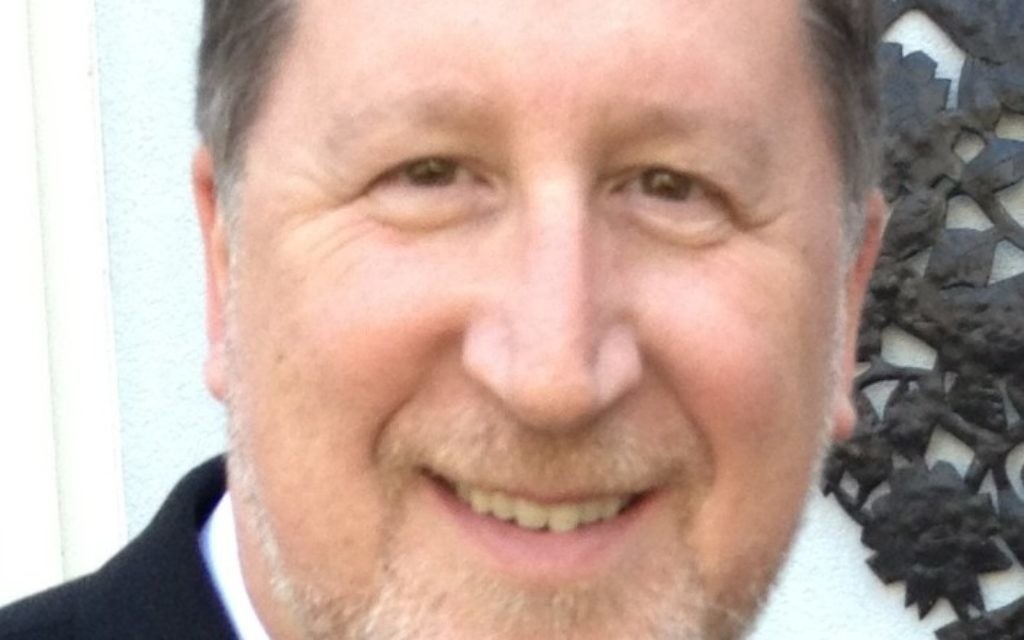Reclaiming Our Lost Possessions
Rabbi Paul D. Kerbel was associate rabbi at Congregation Etz Chaim from 2003 to 2015 and is now interim associate rabbi of Temple Emanu-El in Closter, N.J.
In the midst of our fasting and praying on Yom Kippur, we pause on this holiest of days to remember our loved ones and our friends, those special people in our lives who are no longer with us: parents and grandparents, siblings, spouses and children, who gave our lives so much meaning and helped shape who we are, where we are going, and anchor us to our past, our history and our roots.
I want to tell you a true story. This story was told in a recent book on Passover by a gifted Orthodox rabbi and teacher who I have had the opportunity to meet and listen to: Rabbi Benjamin Blech.
Here is Rabbi Blech’s story:
Get The AJT Newsletter by email and never miss our top stories Free Sign Up
“I was browsing for an item of Jewish interest in an antique store in lower Manhattan. What I found made me weep. But soon I realized that tears were not enough. It was then that I vowed to tell this story, to ensure that nothing like it happens again.
You see, I was a witness to a murder. Not the murder of a person. No, perhaps something more horrible. The murder of memory. The callous, cruel indifference to the most important message of our tradition and especially the holiday of Passover.
What I spotted in that store was a seder plate that I immediately recognized. How could I not? It was the focus of my eulogy for Sam, a survivor of Auschwitz. What a tale it had been. The Germans rounded up all the Jews in his little town for deportation. Others may have believed the grand lie that they were merely being transported to another site to be used for labor. Sam was too smart for that. He knew they would be murdered. He believed Hitler and understood that the Nazis wanted to eliminate every Jew as well as every reminder of their heritage. So, he did what he could to save some reminder of his precious Jewish heritage. How he wanted to save Torah scrolls and the silver from the holy ark. But he had so little time and he could dig a hole only so big. Sam buried one item: his family’s Passover beautiful silver seder plate, passed down from generation to generation.
So, 50 paces from his favorite tree in his back yard, Sam hid the seder plate. He called the tree his ‘Etz Chaim’, his ‘tree of life.’ If he survived and could return to his home and find his seder plate, he would have foiled the German plan to destroy every remnant of Judaism.
Sam could never explain how he and all of his family and friends survived. In his heart, he believed that because of his buried seder plate and his ‘tree of life’ – the two things he thought about every day – that his holy mission to save and cherish the traditions of our people kept him alive.
After the war, Sam went back to his town, returned to his home, dug up his seder plate and lived to celebrate dozens of Passovers with his seder plate until he died.
You know what I am about to tell you: Rabbi Blech was in an antique store; he recognized the seder plate on sale in the shop! “Where was it from?” he asked the store owner.
“Oh, it was part of an estate sale by the children,” the store owner said. “You see, he was religious, but his children weren’t,” so these are the words of the store owner, “they don’t really have any need for items like these. The buried treasure of the past had become the discarded trash of the generation that followed.”
How I wish this story was rare. But I have seen too often that we live in an age that doesn’t understand the meaning of memory. We live in an age of unsentimental disregard for the past. The sad truth is that we live in a throw-away world that gives equal weight to used clothes and furniture, old cars and old family heirlooms.
So today, I ask us to treasure and value the meaning of memories. Or more importantly, I ask you to treasure the memories of our loved ones, whom we remember today with honor and respect. Each of our loved ones taught us, nurtured us, sustained us. They gave us possessions; they gave us wisdom. They taught us how to play cards and drive a car; they may have taught us how to ride a bike, cook a brisket or sing a song.
“Remember,” the Bible commands us, “because memory is the secret of eternal life.” It is why we have survived throughout the ages. It is how our parents and other loved ones live on in us, even as we hope that we will live on in the hearts of our children and descendants.
May we sharpen our ability to remember what is truly important; may we reclaim our lost possessions and hope that we, too, will live lives worthy of being remembered. Our fast is almost over. We have used this day to reflect on our lives and on our behaviors, our goals and the strategies we might employ to achieve a life of honor and respect, of community and of responsibility.
I only ask you to do one more thing: together let us reclaim our heritage and our memories. Let us remember what our loved ones stood for and what they wanted us to carry on in our lives in their memory.
As we recite Yizkor on this Yom Kippur, may we challenge ourselves to live stronger and more meaningful Jewish lives – filled with memories that will continue as long as we live.





comments